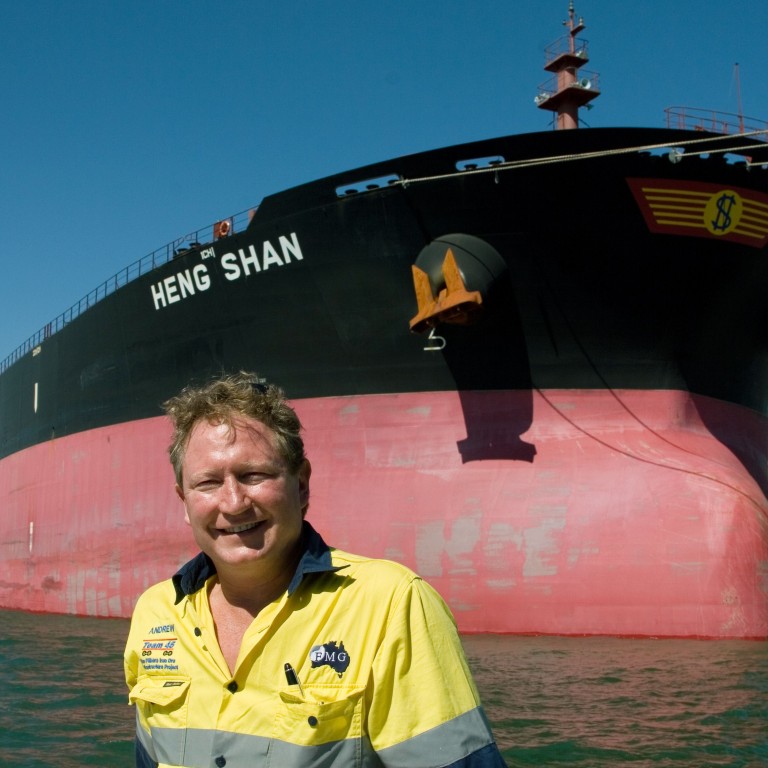
Court upholds controversial Australian mining tax
Australia’s High Court upheld the ruling Labor party’s contested resources profits tax on Wednesday, dismissing a constitutional appeal from major iron ore firm Fortescue Metals Group.
Fortescue, founded by billionaire Andrew “Twiggy” Forrest, had asked Australia’s highest court to rule that the Minerals Resource Rent Tax (MRRT) was an incorrect use of the government’s legislative powers.
The levy, which came into force on July 1 last year, taxes profits above A$75 million (HK$521.3 million) on iron ore and coal at a rate of 22.5 per cent.
It was watered down after a furious publicity campaign by BHP Billiton, Rio Tinto and Fortescue, which contributed to Prime Minister Kevin Rudd being ousted by his deputy Julia Gillard in 2010 amid plunging opinion poll ratings.
Rudd deposed Gillard to retake the top job in June and is now campaigning for a third term for Labor when Australians go to the polls on September 7.
The High Court of Australia rejected the appeal from Fortescue -- the world’s fourth-largest iron ore miner -- which was argued on the grounds of conflicts between state and national mining laws.
“The full court unanimously dismissed the challenge to the validity of the (MRRT) acts,” it said in a summary of its judgement.
The diluted version of the mining tax -- which was intended to return a share of the spoils of Australia’s decade-long mining boom to government coffers -- has been widely criticised after its revenues fell dramatically short of forecasts.
The government originally estimated that the resources profits tax would raise A$3.0 billion in its first year of operation and A$9.0 billion this year-14.
That was scaled back to A$3.0 billion and A$3.5 billion last year’s budget and to A$2.0 billion and A$2.4 billion in October’s mid-year economic update.
According to this year’s budget, handed down in May, the MRRT raised just A$200 million last financial year and will bring in A$700 million in the 12 months to June 30 next year.
Treasurer Chris Bowen welcomed the High Court’s decision that the “constitutional basis for the MRRT legislation is sound” and defended its failure to meet revenue targets.
“As a profits-based tax, it responds to changing industry conditions, automatically collecting less revenue when profits are low and more revenue when profits are high,” Bowen said.
Labor has blamed plunging commodity prices but some critics of the tax have argued the deductions provisions brokered by the industry are too generous, resulting in major miners actually being in credit.
“It is flawed. It’s not raising any money. Rio Tinto didn’t pay any in the June quarter, how ridiculous is that,” said Christine Milne, leader of the left-wing, environmentally driven Greens party.
Fortescue said it was disappointed by the ruling over what it described as an “unfair, discriminatory and complex tax”.
“Fortescue’s objections have been borne out by the very low revenue collected by the tax,” it said in a statement to the Australian stock exchange.
The conservative opposition has pledged to scrap the MRRT if it wins office next month.
